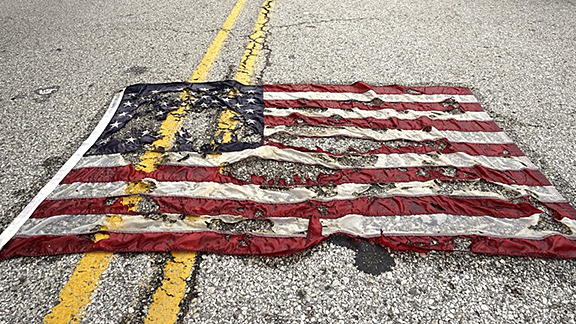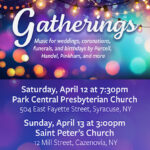War on the American Republic: How Liberalism Became Despotism by Kevin Slack
I’ve had a number of conversations with people about The Baby Boom (the “Boomers”) and how horrible they were, and how they destroyed everything.

Except many of the things they were accused of doing, such as starting the war in Viet Nam, they really had no part in as they were too young. (However odd it sounds to say the Boomers were ever young, which in and of itself is amusing as the byword of the generation was “Never trust anyone over 30,” and today they are the symbol of old, grey, and out of touch.)
They’re often blamed for the sex, drugs and rock’n’roll culture which was led by people like Timothy Leary (“Tune in, turn on, drop out”), born 1920; or the Merry Pranksters, among them Ken Kesey (The Chief, Captain Flag, or Swashbuckler, author, 1935-2001) Neal Cassady (Sir Speed Limit, driver author, 1926-1968) – the youngest of whom was born in 1946; even Bob Dylan, born in 1941. In other words, the Boomers (1948-1964) were influenced by and offered a dream by their older brothers, sisters, and other young adults when they were just teens and tweens.
This book is somewhat like that conversation on steroids, and with the added benefit of its author being a fountain of highly researched information.
Slack is a professor of politics at Hillsdale College, where he teaches political philosophy and American political thought. Right away, this will cause some ears to prick up and some people to reject the book out of hand: Hillsdale is a bastion of conservative thinking in an academic world that doesn’t favor such scholarship.
From my point of view, it’s important to read history and analysis from as many sources as possible, even if the result is “I don’t know what to think!”
The point of my Baby Boom intro was to set a stage: over time, the Baby Boom generation became the authors, in the minds of many, of what they walked into as impressionable kids. What other misconceptions about who, why, and what in political and social history are there? That’s at least one of the tasks this book sets itself: to try to understand how the United States went from being the united (the “u” is deliberately not capitalized, as that is how it was originally stated) States to what Slack unabashedly calls “an incompetent kleptocracy…draining the wealthiest and most powerful people in history, thus eroding the foundations of its own empire.”

He begins by defining, and defending, terms. This is essential in any debate, and often when I discuss political thought, I’ll begin with a need to agree on what is “liberalism.” To the people who founded the nation, it was “freedom.” Freedom of person, of thought, of speech, of ownership of labor. No, they didn’t execute it perfectly as we can see from the fact of slavery; but to a people who took on the most powerful monarchy of its era and fought to free themselves of it, liberalism had a decidedly different meaning then than it perhaps does today. Thus, he uses the term “republicanism” to describe the old idea of liberalism: a people free to vote and self-govern. More than that, he argues, these people “shared a common way of life and made their land into a home. The political, legal, economic and social institutions expressed that fact…Republican freedom…depended on citizen virtue.”
From this initial liberal/republican founding, “the Progressive Movement (1880-1920) grew out of a spiritual crisis and constituted a fundamental break with the old order. Christian faith and republican citizenship gave way to the new authority of science and the ethical ideal, administrative rule by a scientific aristocracy. Science here meant absolutism or philosophical idealism…Politically, progressives aimed to undermine the separation of powers and forwarded a theory of the administrative state in which Congress would delegate lawmaking powers to impartial experts who could resolve complex questions of commerce and monopoly.”
“The liberals (1933-1969) composed of a rising urban constituency, rejected the progressives’ philosophical idealism. Science no longer meant absolute truth but a pragmatic attitude and an instrument of inquiry;… the liberals argued for regulation of business and the profit motive in state capitalism government and industry would together plan the economy… (discarding) the pretense of popular government for expert management of the people.”
Then technology sped ahead and changed things: “…the neoliberal consensus (1977-2009), a class of center-right and -left elites in the new ‘knowledge economy’ formed an oligarchy. Rejecting the concept of liberal democratic citizens for that of consumers, it adopted social libertarianism and free market principles in trade and deregulation as well as financial centralization.” Compassionate conservatism and identity politics both interpreted “the old white Christian middle class and the American nation as the sources of all the world’s problems.”
The final chapter, despotism, writes Slack,“…has used the COVID-19 pandemic, BLM riots, and the supposed insurrection at the Capitol to justify its deployment of state agencies to destroy the remnants of republicanism…(and create a gap) between a decadent elite living in gated communities and a degraded vulgar mob of dependents.”
And that’s all taken simply from the introduction.
Slack proceeds on a journey from the founding of the country, in which proto-citizens saw themselves as a “voluntary association of individuals…(with) citizenship based on choice.” The government was simply the mechanism to protect the “free peoples’ lives, liberty and property from criminals and invaders.” Of course many readers will be scribbling notes in the margin, as was I, when reading this as the obvious antithesis of this lies in the nation’s history of slavery and indenture, and while he doesn’t shy away from that contradiction, he does stress that this was the ideal of the founders, and while it wasn’t realized in any perfect sense for many years and without considerable bloodshed, the ideals were imagined at a time when people had been routinely subjects of an absolute monarch, and when the “good” was understood to reflect the values of industrious, European-descended Protestants.
In each chapter, Slack attempts to identify the forces moving thought and government from the simple and commonly held ideals of the men of the 1700s toward a present that is, in his view, every bit as controlling as the monarchies of old.
Rather than attempt the daunting task of following his deep analytical tracing of the movement of thought, process, and law from the early American “experiment” to where we are today, I’ll share with you a few quotes – ideas and concepts I found enlightening, surprising, and worth consideration.
“The progressive political revolt against old republicanism originated in a spiritual crisis. Progressivism was birthed in strict Protestantism, which emphasized a conversion experience…Since the 1840s, The American Home Missionary Society had warned that Catholic immigrants and disorderly Western settlements threatened Americanism… An administrative state would train impartial experts – scientific knights of a new order – to regulate the economic interests of a large populace and channel the more sublime inclinations to religion and art.” This progressivism went on to include mandatory education, birth registrations and cases of communicable disease, vaccinations, eugenics, divorce laws, and the concept of “rights” including old age pensions and proper working conditions.
Liberalism included “the 1933 Humanist Manifesto, signed by (John) Dewey, (extolling) the scientific method, denied supernaturalism and exalted human nature, affirming that man was on his own in the universe.” “Social scientists would control all human life ‘from even before birth until death.’…Their probabilistic view of the world required data collection and quantitative analysis, which first began in the 1920s. A key liberal tenet was that culture did not matter. Humans were all the same; a knowledge of nature or their instincts could be used to direct subjects to humane ends.” “Give me a dozen healthy infants, well-formed, and my own specified world to bring them up in, and I’ll guarantee to take any one at random and train him to become any type of specialist I might select – doctor, lawyer, artist, merchant-chief, and yes, even beggar-man and thief, regardless of his talents, penchants, tendencies, abilities, vocations, and race of his ancestors.” During this period, Slack notes that new “alphabet agencies” were created to oversee industry, and manage the economy. Housing projects, killing animals and destroying crops to keep prices where they ought to be, setting up welfare programs and hiring quotas guaranteed proportional reward rather than reward based on effort.
And so it goes – through the Radicalism of the post-war (WWII) era, through the Neoliberalism of the 70s and 80s, and into the Identity Politics of the 1990s and Despotism enabled by the digital revolution of the 90s and 2000s, Slack cuts none. He finds the many and varied ways in which an elite – some form of elite – has always had a hand in directing the course of the lives of the many for the benefit of the few.
Whether you agree with his idealization of “liberties and customs” as those rights inherent in a free society, the book is a worthy read if only to make you examine his extensive research, think about the intellectual and spiritual movements (and who was pushing them) that drove the evolution of the country, and wonder what part, if any, you will – or even want to – play in the next acts of the great American story.











